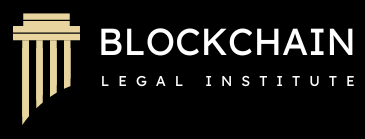Web3, also known as Web 3.0 or the decentralized web, is the next evolution of the internet. It represents a vision of the internet that is more open, decentralized, and user-centric, moving away from the current centralized model dominated by big tech companies. Web3 aims to empower users, protect their data privacy, and provide greater control over their digital identities and assets.
In Web3, blockchain technology plays a central role. Blockchain is a decentralized and immutable ledger that records transactions across a network of computers. It enables secure and transparent data storage, smart contracts (self-executing contracts with predefined rules), and decentralized applications (DApps) that run on a peer-to-peer network rather than a central server.
Key features of Web3 include:
- Decentralization: Web3 applications operate on distributed networks, eliminating the need for a single central authority.
- Data Ownership: Users have greater control over their data and can choose what information to share and with whom.
- Digital Identity: Web3 enables users to have self-sovereign identities, reducing reliance on centralized identity providers.
- Tokenization: Digital assets, represented by tokens on blockchain, can be easily transferred, traded, and monetized.
- Interoperability: Web3 aims to establish interoperability between different blockchains and protocols, creating a more seamless user experience.
Legal Implications of Web3:
- Regulatory Environment: The decentralized nature of Web3 challenges traditional regulatory frameworks. Governments and regulators may need to adapt and create new laws to address issues related to data privacy, intellectual property, consumer protection, and financial transactions.
- Data Privacy and Security: Web3 emphasizes user control over data, but this introduces complexities in ensuring data privacy and security. Compliance with data protection laws (e.g., GDPR) becomes crucial.
- Smart Contracts and Legal Validity: The use of smart contracts raises questions about their legal enforceability and liability in case of disputes or unforeseen circumstances.
- Digital Identity and Identity Theft: Web3’s self-sovereign identity concept may lead to new challenges in verifying user identities and preventing identity theft or fraud.
- Token Regulations: The tokenization of assets may require legal clarity in terms of securities regulations, tax implications, and anti-money laundering (AML) compliance.
- Cross-Border Transactions: Web3’s global nature may create challenges in enforcing legal agreements and resolving disputes across borders.
- Intellectual Property Rights: As content and digital assets become tokenized, protecting intellectual property rights and licensing agreements may require innovative legal solutions.
- Consumer Protection: Users need protection from scams, fraudulent ICOs, and unscrupulous DApps in the decentralized ecosystem.
- Governance and Liability: Decentralized autonomous organizations (DAOs) raise questions about who is responsible for decision-making and liability when issues arise.
Addressing these legal implications will require collaboration among lawmakers, industry players, and legal experts to develop a regulatory framework that fosters innovation while safeguarding user rights and maintaining the integrity of the Web3 ecosystem.
Check back frequently to this page for updates on laws around the world.
Public Blockchains & The Tokenization of Assets
Web3 Builders in the United States:
Article: Web3 & Gaming
CryptoMom2 Talk Show Video: Web3 -What Business Should Know
